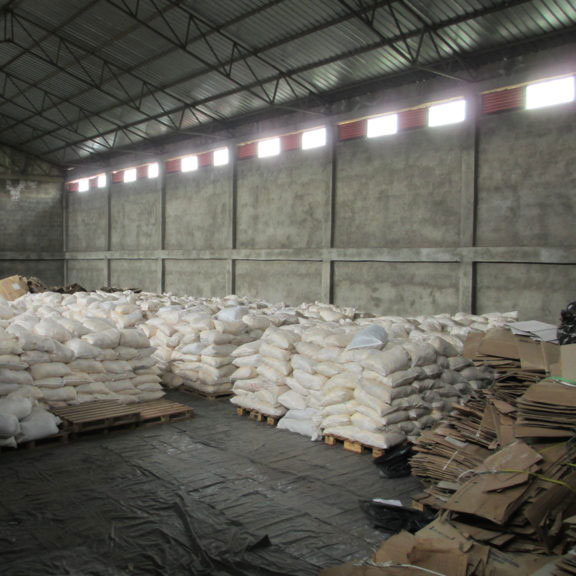PMI AIRS Supports Ethiopia’s Disposal of DDT
For the past six decades, Ethiopia has implemented indoor residual spraying (IRS) to control malaria. In that time, the country has used a variety of insecticides in an effort to combat resistance. As the country periodically shifted to different insecticides, it was often left with an accumulation of expired stock. As a result, Ethiopia was left storing approximately 1,600 tons of obsolete insecticide countrywide. Out of 1,600 tons, 930 tons were DDT. The expired waste was at risk of being stolen and misused, posing risks to the population and the environment. The safest way to dispose of DDT is incineration; however, Ethiopia lacks the capacity to safely incinerate hazardous waste and meet required environmental compliance standards.
To help the country safely dispose of the toxic chemicals, the U.S. President’s Malaria Initiative (PMI) Africa Indoor Residual Spraying (AIRS) Project facilitated training, collection, transboundary permits, offshore shipment, and incineration of the waste in Poland. The PMI AIRS Project focused on 47 districts in Ethiopia’s Oromia region where PMI supports IRS. The project successfully disposed of all 119 tons of DDT and contaminated wastes being stored in those districts.
In implementing this activity, the PMI AIRS Project, Federal Ministry of Health (FMOH) and Ministry of Agriculture (MOA) learned critical lessons and steps that would inform future disposal actions. The process included: quantification of insecticides and assessment of storage conditions at district stores, procurement of personal protective equipment (PPE) and supplies, and training of supervisors and technicians in Occupational Safety and Health Administration (OSHA) rules and regulations. The obsolete insecticide was collected and repacked; disposal focal points at the FMOH and MOA were assigned to deal with coordination of transboundary permits as per relevant environmental conventions (Basel, Stockholm and Geneva Conventions); and a qualified firm was recruited to support the handling of the insecticide and subsequent incineration process offshore.
Malaria team leader at Oromia Regional Health Bureau, Mr. Hirpa Miecha, applauded the support of PMI and efforts of all stakeholders in ensuring that the disposal was a success. He noted that the lessons learned from the process were invaluable in informing future activities. A senior malaria expert from East Showa Zonal Health Office, Mr. Abiy Mekuria, who participated in the DDT collection process as a zonal supervisor, appreciated the safety precautions followed during the activity, including the medical checkups done for all participating staff, the standardized training provided for the technicians, and the provision of respiratory masks and other PPE.
Mr. Yohannes Ameha, from the Ministry of Environment, who served as the ministry’s focal point on the disposal process and travelled twice to Djibouti to secure transit consents, recognized the endurance and commitment of the project and stakeholders in ensuring the disposal process complied with the international transboundary conventions as a key lesson for future activities.
This story was taken from www.africairs.net.

